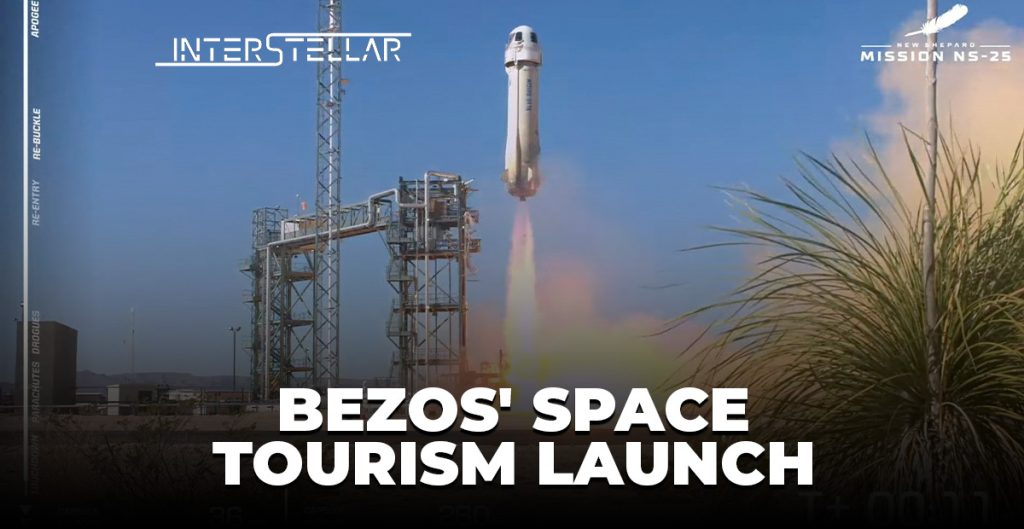Blue Origin Launches Six-Person Crew to the Edge of Space
Blue Origin, Jeff Bezos’ space company, successfully launched a six-person crew from West Texas to the edge of space on Sunday. This flight included Ed Dwight, the first U.S. Black astronaut candidate from the 1960s, marking the resumption of Blue Origin’s space tourism business after its New Shepard rocket was grounded in 2022.
Historic Flight and Crew Members
Ed Dwight, now 90 years and eight months old, became the oldest person to fly to space. Upon landing, he expressed his excitement, saying, “I am ecstatic.” Dwight had been selected by former U.S. President John Kennedy in 1961 to train as an astronaut but had never flown to space until now.
The crew, seated in a gumdrop-shaped capsule atop the rocket, launched from Blue Origin facilities near Van Horn, Texas. The rocket separated from the capsule, which then ascended to 65.7 miles (105.7 km) above Earth, while the booster returned to land as planned. The capsule returned to Earth under parachutes after a roughly 10-minute mission, though one of the three parachutes did not fully inflate, which may attract scrutiny before the next flight.
Ed Dwight’s Milestone
Dwight’s inclusion in this mission is significant. He was the first Black astronaut candidate but never had the opportunity to go to space until now. Upon landing, he stepped out of the capsule and celebrated. He later remarked to a Blue Origin interviewer, “I thought I really didn’t need this in my life, but now I need it in my life.”
Blue Origin’s Space Tourism
This flight was Blue Origin’s seventh crewed mission and included paying customers, such as a venture capitalist and a pilot. Dwight’s seat was sponsored by a space-focused nonprofit and a private foundation. Blue Origin has not disclosed the cost for these space tourism flights.
Technical Challenges and Resumption
The New Shepard rocket was grounded after a mid-flight failure in September 2022 during an uncrewed research mission. A structural failure in the rocket’s engine nozzle forced the capsule, carrying science experiments, to abort. The U.S. Federal Aviation Administration (FAA) required Blue Origin to take 21 corrective actions, including an engine redesign and organisational changes.
New Shepard returned to flight in December 2023 with an uncrewed mission carrying 33 science and research payloads. The recent crewed flight, despite the parachute issue, was deemed a success by Blue Origin. The capsule is designed to safely land with one parachute.
Future Plans and Competition
Blue Origin’s new CEO, Dave Limp, prioritised resuming New Shepard’s routine missions to enhance the company’s competitive stance against Elon Musk’s SpaceX. Besides New Shepard, Blue Origin is focused on debuting its larger rocket, New Glenn, designed to compete with SpaceX’s Falcon 9. Despite delays, Blue Origin expects New Glenn to launch from Florida by the end of the year.
In the suborbital space tourism sector, Blue Origin competes with Richard Branson’s Virgin Galactic, whose VSS Unity spaceplane operates more like a traditional aircraft. Virgin Galactic is set to launch its seventh commercial mission next month before pausing its program until 2026 for fleet upgrades.





